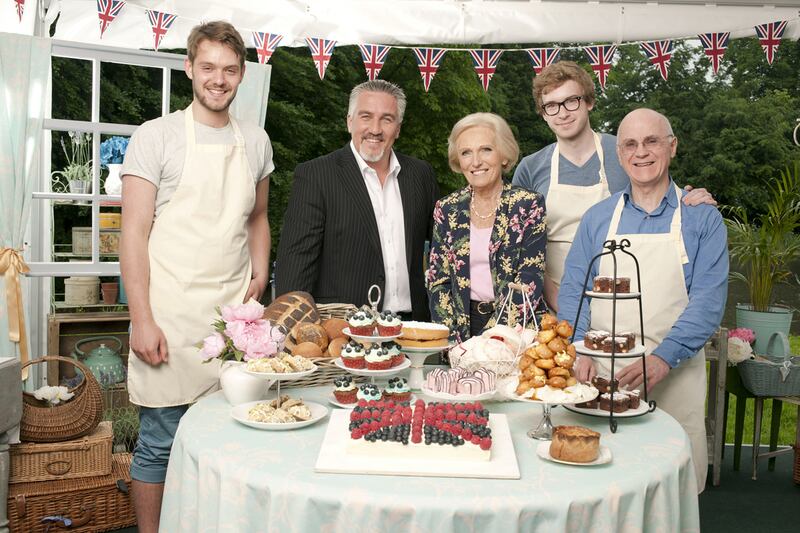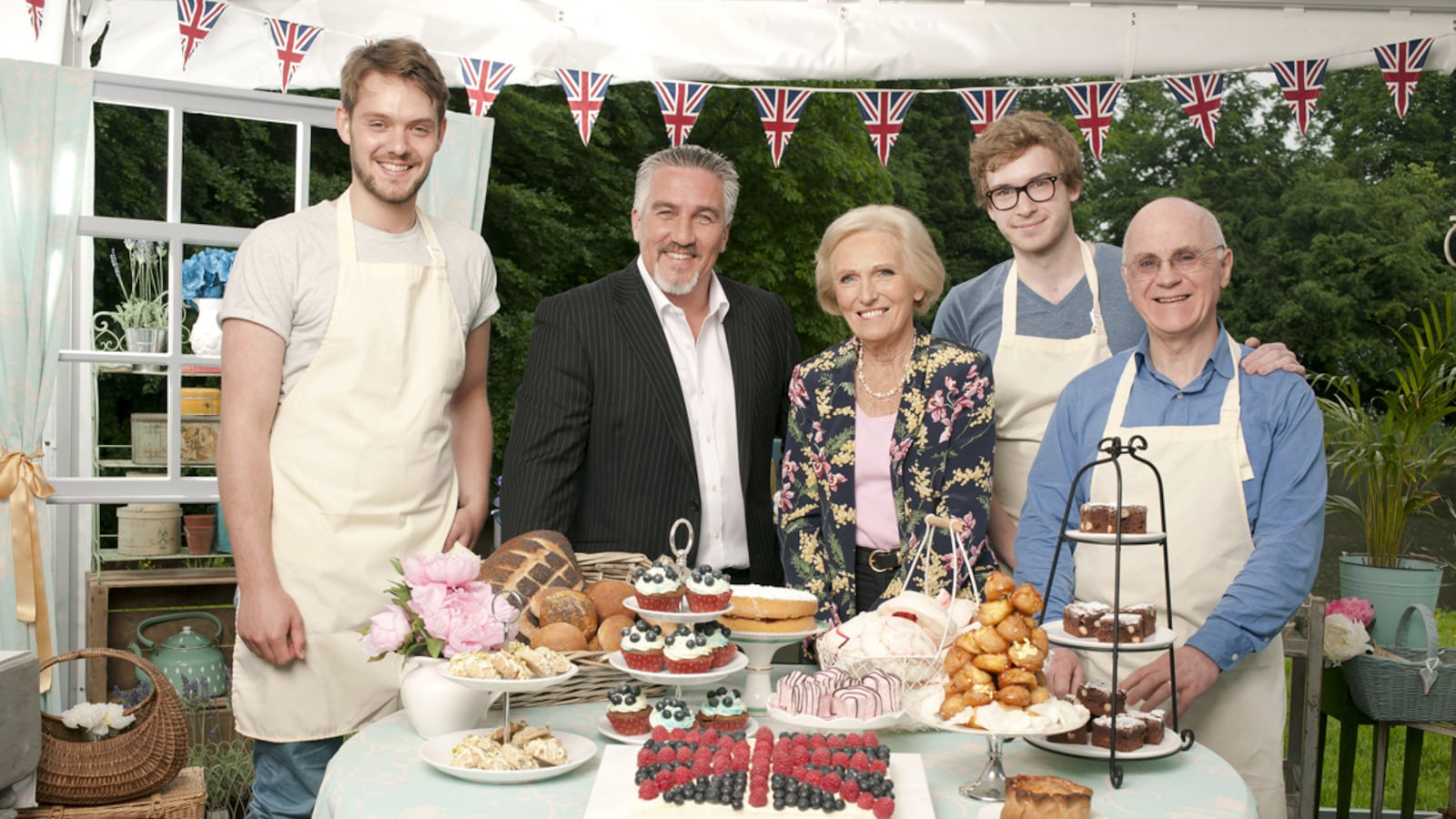The best reality show on television this year doesn’t involve wannabe singers, “real” housewives, or Honey Boo Boo, but rather a bunch of Brits baking cakes in the countryside.
The insanely addictive culinary competition show The Great British Bake Off, which wraps up its third season tonight in the United Kingdom on BBC Two, isn’t remotely salacious or controversial, and that’s part of its inherent charm. (U.S. viewers, you can get your fix on YouTube for the time being.)
Bravo’s homegrown Top Chef could learn a thing or two from the runaway British television hit, which riveted 5.6 million viewers last week and grabbed a staggering 23.7 percent audience share, nearly trebling its audience from where it began in 2010. It also has been a critical triumph as well. Radio Times’s Jack Seale wrote of last week’s episode, “The French-themed semi-final was a tense affair, about as dramatic and unforgiving as telly can get while still being about cake. Hardcore patisserie.”
Pitting 12 home bakers against each other for the top prize by putting them through their paces with three challenges per week (a signature challenge, a technical challenge, and a showstopper), The Great British Bake Off shouldn’t be nearly as taut and stressful as it is. Yet there’s something intensely nerve-wracking about seeing a vicar’s wife attempt to make a beef Wellington ... and having the pastry casting slide off under the harsh heat of the oven, or a Fair Isle sweater-clad Scottish lad attempting to mix chilies and salt as a topping for a French macaron. And, yes, there is something hardcore about the challenges—produce 12 sweet and 12 savory bagels under pressure!—and the challengers themselves, ambitious amateurs with a breadth of skill and knowledge. They would put many of Top Chef’s or Sweet Genius’s professionals, some of whom seem more desperate for fame than to further their craft, to shame.
Unlike the show’s American culinary competition siblings, The Great British Bake Off, or GBBO for short, is cozy and comforting, the television equivalent of a steaming hot mug of cocoa. It doesn’t concern itself with mining drama out of the interpersonal relationships between the bakers. While Top Chef: Just Desserts tapped into the drama queen madness of its contestants (remember the “Red Hots are for my mommy” breakdown of one competitor?), The Great British Bake Off instead wisely keeps the focus on the baking itself. It helps that the contestants—from diverse backgrounds, ages, races, and genders—are genuinely supportive of each other in the kitchen. There are no verbal explosions, no thrown pots, no punched walls. The drama is left to the rising of a soufflé rather than that of tempers; disappointment is internalized rather than directed outward.

(It’s a lesson that Top Chef may have learned amid widespread criticism for its recent lackluster season. Putting aside the gimmickry and producer-manufactured “drama,” the season opener of Top Chef: Seattle, airing Nov. 7 on Bravo, wisely focuses more on the skill set and cooking ability of its would-be superstar chefs. It’s a vast improvement over the previous season, even when viewed in the light of the superior Great British Bake Off.)
But there is heat to The Great British Bake Off as well. Due to the high production values, gorgeous manor house backdrop of Harptree Court in Somerset, and an unexpected educational streak, The Great British Bake Off manages to become a rare beast in the reality competition world: a show that is both entertaining and educational, comforting and nerve-wracking. Much of the edification comes from prerecorded segments that highlight elements of British culinary history, whether it be the Victorian-era rise of eel pie, the public flogging of unscrupulous bakers in medieval times, or the role of the well-paid manor house confectioner.
The gravitas also emanates from the show’s beloved judges: meticulous master baker Paul Hollywood and the queen of puddings herself, Mary Berry. Both are notoriously hard to please, always ticking contestants off for “soggy bottoms” or “underbaked” pastry. But they’re also wise, knowledgeable, and honest to a fault, sticklers about sweets and savories who are hard to win over but also effusive with praise when a baker gets it right.
Their seriousness is in contrast to The Great British Bake Off’s hosts, comedy duo Mel Giedroyc and Sue Perkins, who inject a degree of levity and fun into the proceedings and who also present the aforementioned educational bits with humor and wit. Whereas Padma Lakshmi adds little to the process of Top Chef besides presiding over the judges table and offering awkward challenge introductions, Mel and Sue are an integral part of The Great British Bake Off’s creative success.
Tuesday night’s season finale pits the final three bakers—all men, surprisingly—in their toughest challenges to date. They not only must survive three rounds of tests—baking pithiviers, chiffon sponges, and “fondant fancies”—but also must amaze the judges with their creativity, presentation, and ultimately, flavors. While it’s still anybody’s game, what is clear is just how well the show satisfies, a well-rounded treat at the end of a meal.
The Great British Bake Off proves that there is a place in the television landscape for well-crafted entertainment that can charm and captivate without smoke and mirrors or temper tantrums. Sometimes all it takes is a challenge, a kitchen, and a baker or two.





